Do all blogs have a few posts that start with “Sorry we haven’t updated for a while, it’s been busy”? This is (one of) ours.
We are nearing the end of this project, and we will start to release some of the main recommendations as we complete the final report. First, we present the framework we will be recommending for considering pedagogical merits. This framework can be used in the process of appointing new staff, in supporting teachers through their careers, as a self-assessment for teachers during their careers, and as part of formal recognition processes such as admission to a faculty academy or promotion to lektor, docent or professor from other teaching roles.
The framework has four steps, which you can read below. In future posts we will share information about the evidence teachers could use to demonstrate their progression through the steps.
- Effective educator / Kompetent lärare
- Skilled and Collegial educator / meriterad lärare
- Institutional leader / excellent lärare
- National and international leader / ledande lärare
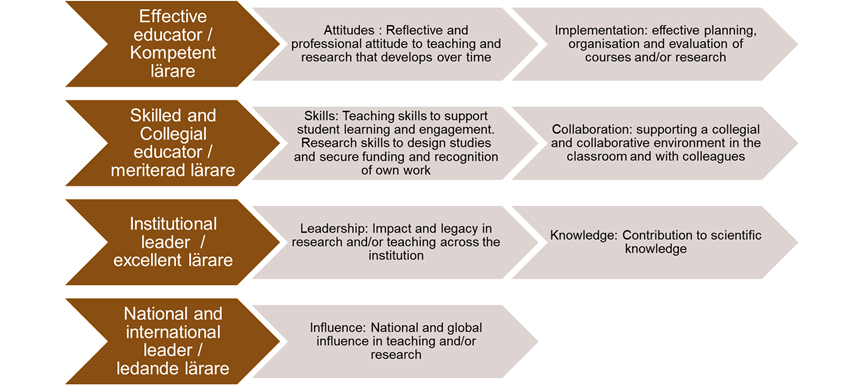
Details of the steps
- Effective educator / Kompetent lärare
Expected sphere of influence: Small groups of students and individual students at any level.
This level is expected of anyone beginning their careers in teaching roles at Lund University. In most cases, relevant experience will have been gained during postgraduate and postdoctoral work. In some situations, colleagues will be transferring into university teaching after a career in another profession. Competence as an Effective Educator is most likely to be demonstrated through evidence of engagement with basic introductory training, some supervision of students, observation of others teaching in universities, and reflection on your own capacity to develop your skills and knowledge of effective teaching in your discipline. You will need to show a reflective and professional attitude to teaching that has developed over time, and provide examples of ways you have used effective planning, organisation and evaluation techniques to manage your work, even if it was not necessarily in an educational context.
- Skilled and Collegial educator / meriterad lärare
Expected sphere of influence: students at any level, colleagues in department and faculty
The level of skilled and collegial educator is likely to be demonstrated through evidence of planning and evaluating teaching sessions, working with colleagues to develop and enhance courses and programmes and/or to implement new approaches or policies in education, attendance at and reflection on educational development activities such as webinars and courses, departmental seminars and awaydays or external conferences. You will need to show a reflective and professional attitude to student learning and engagement, a commitment to contributing to and supporting a collegial and collaborative environment in relation to teaching in your department and subject. You may also be beginning to contribute to professional networks inside and outside the university, perhaps developing a specialist expertise in an area of teaching. You may be mentoring or supervising less experienced colleagues or taking a lead on small-scale changes in a programme.
- Institutional leader / excellent lärare
Expected sphere of influence: students across programmes, colleagues across the faculty and university, professional networks inside and outside the university
At this level, a teacher will be a leader of educational activities and enhancement, with influence beyond their immediate colleagues. This is likely to be demonstrated through evidence of successful development activity which has impact on large numbers of students and staff, leadership of funded projects, creation of extensively-used resources or scholarly publications on higher education. This should also include providing mentoring or other direct support to less experienced colleagues in relation to education. You may also be developing a national and international reputation in a specialist area of teaching.
- National and international leader / ledande lärare
Expected sphere of influence: students and colleagues across the university, including senior leadership, international professional networks
At this level, a teacher will need to show national or international leadership of educational activities and enhancement, with influence beyond the university. This is likely to be demonstrated through evidence of successful activity which has impact on national and international practices, scholarly publications, extensively used educational resources and contributions to scholarship, development and/or recruitment in other universities.
.

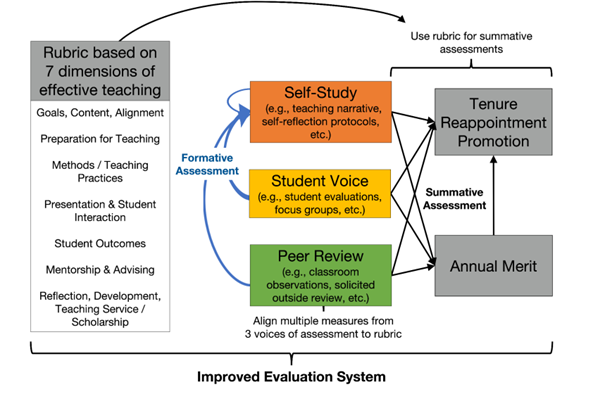
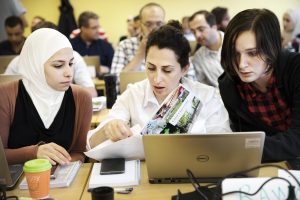
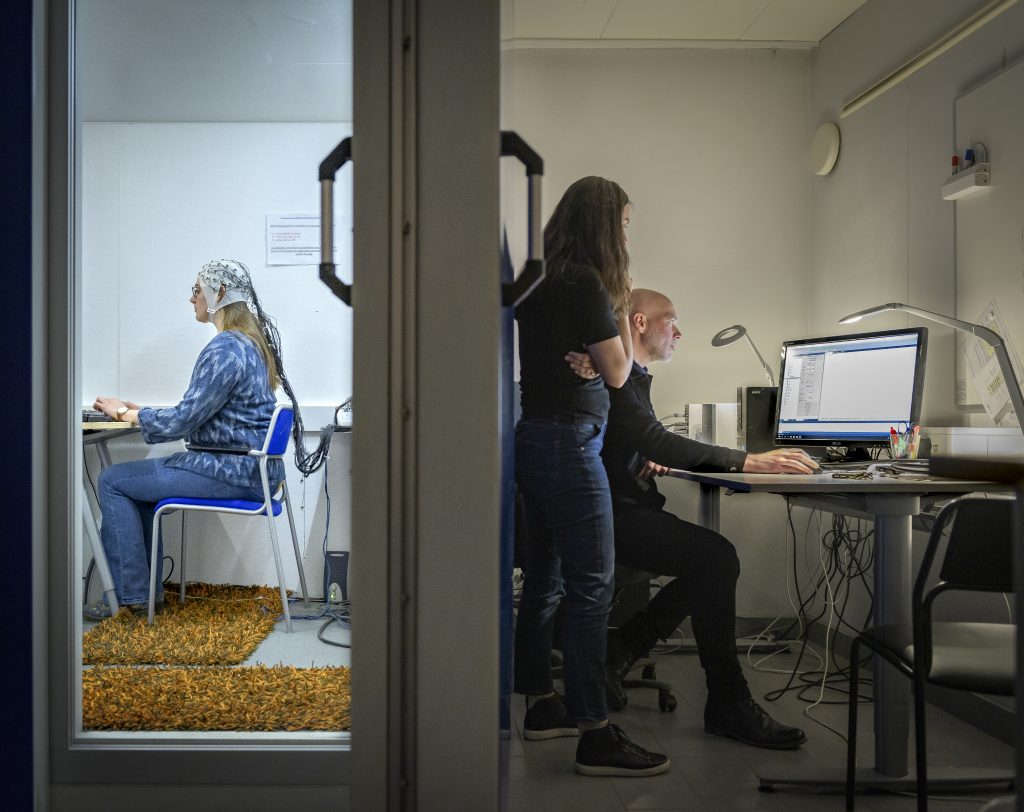
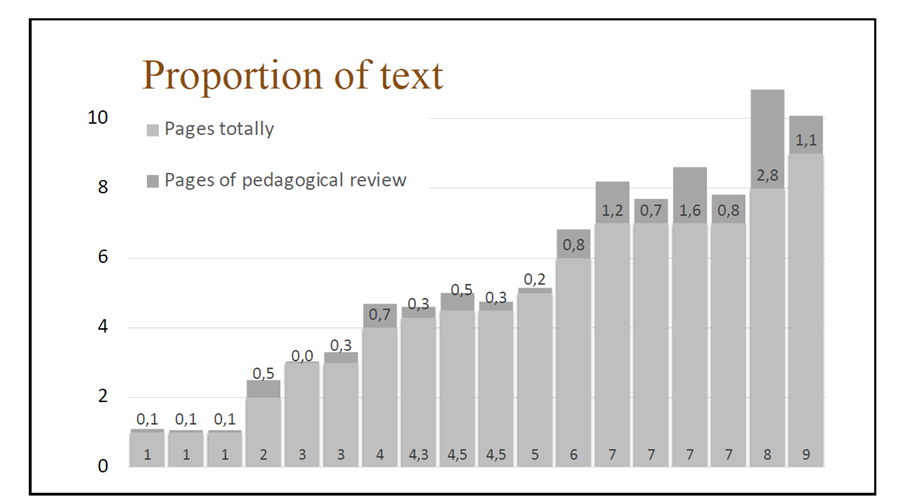
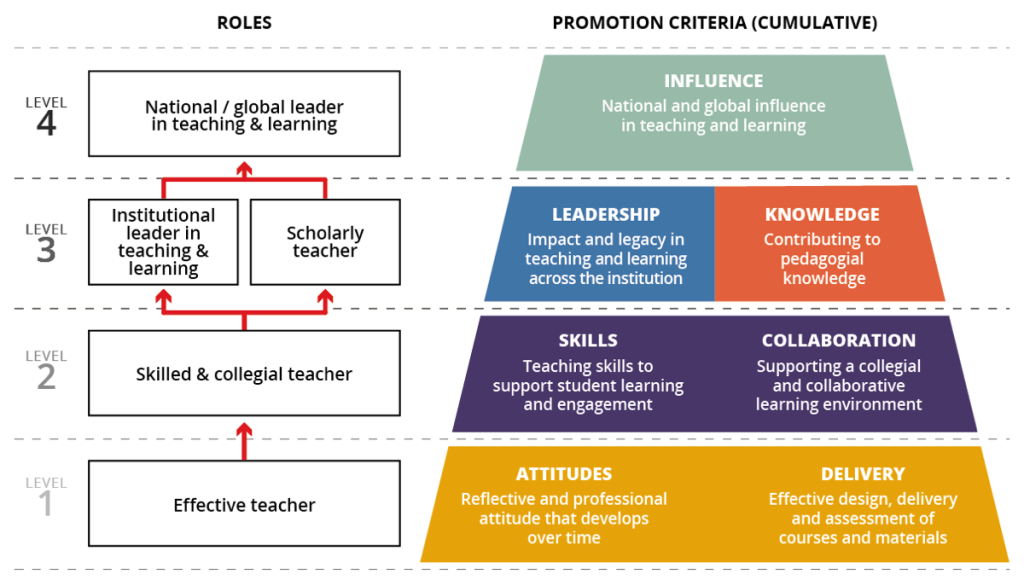
Comments